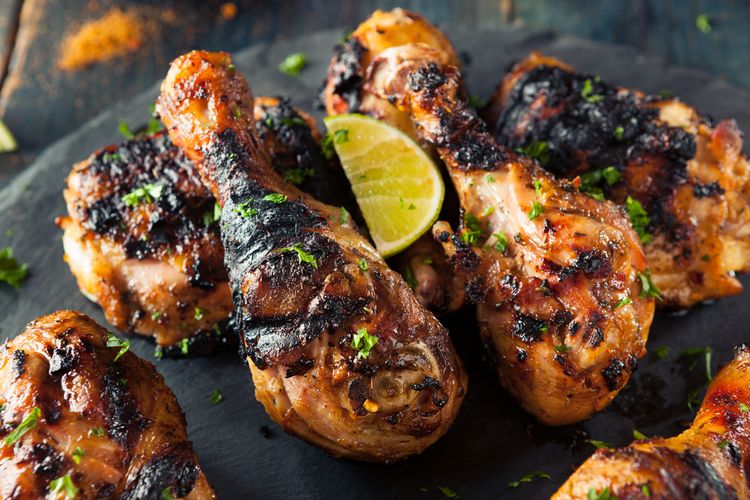5 Steps To Healthier Grilling

Steve Moore’s backyard has been the hosting site of his block’s annual Memorial Day barbecue since 2009. He grills up anything not nailed down to the shelves, while kids frolic in his pool and adults mingle over some creatively-crafted beverages. This year however, people noticed that the food was a little different – meat was less charred, veggies were more abundant, and Steve paid extra attention to taking meticulous care of his grill. So… why the changes?
Steve had recently been told by his doctor that he needed to clean up his diet, and that his highly-carcinogenic ways would be one of the first habits to amend. Upon learning about the effects of carcinogens, Steve was shocked by just how much damage he’d been unknowingly doing to his body.
As is the case with many Americans, you could be fooled into believing that grilling meat is the national pastime at Steve’s house. Whether celebrating a friend’s birthday, having a neighborhood party, or just exercising the right to consume as much barbecue as he possibly can, cooking meat has been a part of Steve’s cultural makeup for a LONG time.
However, with modern conveniences come modern health risks. Recent research shows that consuming meat cooked over high heat can increase the chance of developing cancer. The reaction of muscle proteins when cooked over high heat can create carcinogenic compounds called heterocyclic amines (HCAs), which damage DNA and can disperse throughout the body.
That black char you enjoy on your favorite grilled or pan-fried meat is the culprit. Thankfully, meat-loving “Fat-Burning Man” Abel James has come up with five ways to reduce the production of carcinogens when cooking meat, which we’re more than happy to share with you.
1. Turn Down the Heat
That old saying “If you can’t stand the heat, get out of the kitchen!” should be changed to “If you can’t stand the heat, turn it down, maybe throw in some veggies, and live a healthier, more prosperous life.” Alright, maybe that won’t catch on.
Unnecessarily long mottos aside, simply reducing the heat or moving your meat farther away from the heat source can decrease the HCAs produced while cooking. The key is to avoid charring and over-cooking your meat. Instead of grilling or pan-frying, try using a slow cooker, oven, or boiling your meat.
2. Marinate Your Meat
Meat marinades (be weary of the store-bought kind, but they’re not ALL bad) contain spices that are heavy in antioxidants, molecules that reduce carcinogenic damage, and can reduce HCA content by 95%!
3. Do Not Overcook
Unless you attended a culinary institute, chances are you probably have no real idea of how to cook your meat to the right consistency each and every time. Do yourself a favor and get a meat thermometer, and follow this temperature guide to avoid over-cooking:
Seafood: 140oF
Pork/Ham: 145oF
Chicken/Turkey: 165oF
Beef/Veal/Lamb: 145oF
Ground Chicken/Turkey: 165oF
Ground Beef/Pork/Veal/Lamb: 160oF
4. Grill Veggies Instead
The one topic that almost all health “gurus” will agree on is vegetables – they’re pretty darn good for you! Veggies (and fruits) don’t form HCAs when cooked over high heat, so no need to be overly-concerned about charring on the grill.
5. Clean Your Grill Before Each Use
Charred pieces of meat left on the grill are carcinogenic and can increase the amount of HCAs on meat cooked over them. Don’t be lazy—take the time to heat your grill before cooking and scrub off the residuals from last weekend’s barbecue.
Summary
Learn how to cook. Don’t just throw meat on the grill and pray to the food gods for perfect steaks. Instead, take your time; use spices, use veggies, and clean your grill so that your friends don’t have to suffer through over-cooked carcinogenic football leather.
